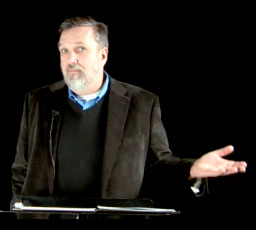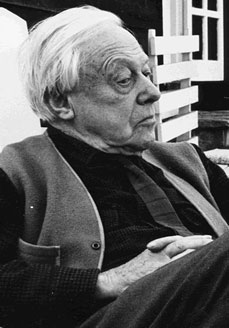Jun
13
2011

Someone made the comment that the “Bible Matrix” is something mystical. While it is certainly typological, it is not mystical. And it is only typological because it is the process of maturity God has built into everything under heaven. Trees and men grow up and bear fruit. That’s typology.
Continue reading
2 comments | tags: Amillennialism, Covenant Theology, James Jordan, Millennium, Postmillennialism, Revelation, Revelation 20, Satan, Typology | posted in Against Hyperpreterism, Bible Matrix, Biblical Theology, The Last Days
May
23
2011
In the Telegraph, Tim Stanley writes:
Evangelism is complex and nuanced. There are charismatics and fundamentalists, liberals and conservatives, black and white and racially mixed congregations. Its variation accords well with the free-market ethos of America, where each church is part of a thriving marketplace of ideas. Evangelicalism cannot be summarised in one glib column, or damned by the actions of one misguided branch. And while the federal government continues to break down and capitalism only entrenches divides, evangelicalism is a motor of social change.
Continue reading
Comments Off | tags: Postmillennialism | posted in Apologetics, Christian Life, Quotes
Apr
15
2011

or Baptizing the World
After Pentecost, the firstfruits church met in the Temple. Over the next few decades, the Jewish leaders barred these worshippers from their premises. What they didn’t realise was that the glory was departing as it did in the time of Ezekiel, only this time it was inside people who were living Temples as Jesus was.
Continue reading
10 comments | tags: Baptism, China, Dispensationalism, Persecution, Postmillennialism | posted in Biblical Theology, Christian Life, Creation, Ethics, Totus Christus
Apr
8
2011
“Reports of Christianity’s demise have been greatly exaggerated.”
“If your eschatology sees something other than the progressive growth and universal influence of the Kingdom of God in time and history, the success and triumph of the Great Commission, then you’d better stop drinking the Kool-Aid.” George Shubin
That was my friend George’s comment after reading this article by George Weigel from First Things.
For 27 years, the International Bulletin of Missionary Research has published an annual “Status of Global Mission” report, which attempts to quantify the world Christian reality, comparing Christianity’s circumstances to those of other faiths, and assaying how Christianity’s various expressions are faring when measured against the recent (and not-so-recent) past. The report is unfailingly interesting, sometimes jarring, and occasionally provocative.
Continue reading
Comments Off | tags: Atheism, Christopher Hitchens, Islam, Postmillennialism, Richard Dawkins, Roman Catholicism | posted in Biblical Theology, Quotes
Mar
21
2011

Here’s a great post from Doug Hayes’ blog, republished here with his permission.
When Rich Bledsoe was with us at Family Camp he mentioned a paper he wrote: Sex and the City, [PDF] which we have now placed on the RCC website. It is an interesting piece of biblical social commentary worth thinking about.
Bledsoe contrasts the great ancient cities with the great city of God, the New Jerusalem and their respective sexual commitments and activities. At the base of his comments is the presupposition that it is important for us to think about cities because “the entire planet is ‘metropolizing.’ Everywhere, human beings are leaving their rural roots and are moving into the city.”
Continue reading
Comments Off | tags: Babylon, Culture, Doug Hayes, Eschatology, Marriage, New Jerusalem, Postmillennialism, Revelation, Rich Bledsoe | posted in Biblical Theology, Quotes
Jan
12
2011
 .
.
According to Doug Wilson, this world is going where Jesus is taking it. He discusses technology as wealth — with all of the usual traps and benefits.
Continue reading
Comments Off | tags: Doug Wilson, Postmillennialism | posted in Biblical Theology
Dec
13
2010

“Deny that God speaks to any area of life, and you have denied God’s jurisdiction in that area of life.”
A very intelligent Christian recently posed the question, “What will be the most pressing intellectual challenge facing the church over the next 50 years?” What if the biggest challenge facing the church is not intellectual at all, but ethical. [1]
Continue reading
1 comment | tags: Barth, Brueggemann, C. S. Lewis, Gary North, Genesis, Joseph, Postmillennialism, Socialism, Toby Sumpter, Van Til | posted in Ethics, Quotes
Nov
6
2010
or A Bigger Christendom

“In the middle of its street, and on either side of the river,
was tree of life, which bore twelve fruits,
each tree yielding its fruit every month.
The leaves of the tree were for the healing of the nations.”
Revelation 22:2
NOTE: THIS POST HAS BEEN REMIXED AND INCLUDED IN GOD’S KITCHEN.
While the governments of the first global economy in history explore areas of policy for which there is no historical precedent, Christians need to understand that even now, there is nothing new under the sun. It may be true, as some believe, that every war (including World War I) can be traced back to disputes over resources. But all the economic advice we need, whether personal, national or global, is contained in the Bible. The Tree of Life is still at the centre of the Garden, but it is the Church, and God is working on a forest. Continue reading
7 comments | tags: Economics, Gnosticism, Jonah, Paul, Postmillennialism, Samson, Tabernacle | posted in Biblical Theology, The Last Days, The Restoration Era
Nov
3
2010
“Adam himself was to bring both death and life into the world through wise judgment.”
 .
.
The view that the death and resurrection of Christ purchased back for us the innocence (and innocent world) of Genesis 1 seems extremely childish to me now. How did we miss the fact that the Old Testament is filled to overflow with deaths and resurrections, personal, familial, national and imperial? There was no death before sin, but the scenario deliberately set up by God in Genesis was to bring Adam to a point of making a wise judgment. He was to crush the head of the serpent. In a sense, he was to kill death. His obedience would guarantee future life, but his obedience itself was a form of death. Obeying God is a daily dying, but as Paul understood, it was a dying so that there might be rejoicing on the other side. Obedience is a death that makes a judgment call to purchase, nay, miraculously create, new life. The original creation was set up, wound up, to go somewhere better, to be something greater.
Peter Leithart gave some lectures on the writings of Eugen Rosenstock-Huessy in 2008: Continue reading
Comments Off | tags: Eugen Rosenstock-Huessy, Genesis, Nietzsche, Obedience, Peter Leithart, Postmillennialism, Resurrection | posted in Biblical Theology, Creation, Quotes
































